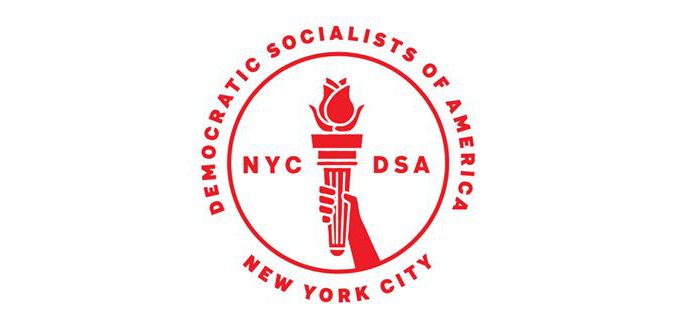
By Devin M.
The Citywide Leadership Committeel (CLC) meeting opened with an assessment of NYC’s political moment. In a complex landscape that includes high union density and many non-profit, activist and advocacy groups with an array of motivations and interests, the 2018 primary elections saw multiple upsets, including Julia Salazar’s State Senate primary victory over Martin Dilan.
Several CLC members argued that NYC-DSA should stick to a minimalist political platform. With wind in our sails from our electoral victories in recent months, the argument went, we can make demands of our elected officials and move our coalition partners to the left, but we need to stay on message. “All property is theft” can’t and shouldn’t be our opening statement to legislators or serve as the foundation for a robust working class movement. The merits of using universal rent control, Medicare for all, ending cash bail, and “no new jails” as the tentpoles of DSA’s “big tent” platform were discussed; they are great entry points for a more radical materialist analysis of our current political moment.
New York Health Act (NYHA) and Universal Rent Control (URC)
Jen James and Cea Weaver recapped the status of the chapter’s two citywide priority campaigns, the New York Health Act and universal rent control. Both campaigns have been successful in some ways, but several CLC members said we may need to overhaul how we manage issue campaigns, which have less clear goals than electoral campaigns. When planning an electoral campaign, it’s relatively straightforward to determine how many votes a candidate needs to win, which gives campaign leaders clarity in planning volunteer recruitment, canvassing operations, and coalition building. Rank and file members can canvass for a few hours and know that they’ve made a quantifiable impact. It’s much harder to quantify the results of canvassing for issue campaigns. Does success hinge on swaying the vote of several politicians for a bill that will likely die in committee or is the goal simply raising awareness about the issue?
Is canvassing the best way to build support for these issues? NYC-DSA will likely need to continue grappling with this question. It may make more sense for branches to focus locally, reach out to local community groups on the issues they are fighting for, and encourage DSA members to get involved in any causes that align with our minimalist citywide platform, once we establish one.
Amendments to Grievance Policy
Votes: 33 in favor / 0 Against / 1 Abstain
The CLC passed without objection an amendment to the grievance policy that consolidated two proposed amendments. The amendment made the language of the grievance policy more consistent and loosened the geographic requirements for grievance officers so that we can focus on achieving racial and ethnic diversity.
Conflict of Interest Proposal
Votes: 11 in favor / 21 Against / 3 Abstain
Despite broad agreement that a conflict of interest policy is needed, it quickly became that as written, the proposal would have unintended side effects. Although the proposal seemed fine, members pointed out that It doesn’t make sense to ask members to recuse themselves from voting on issues where they have a non-monetary interest. Also, we shouldn’t disenfranchise members who succeed in getting jobs fighting for issues they care passionately about; we should encourage members to work for issues.
With over 30 people in attendance, the meeting was too large to debate copy edits. The CLC needs to figure out how to have collaborative discussions about proposals and amendments before meetings, perhaps through a pre-meeting conference call to review proposals.
Final Thoughts
Overall, the meeting was collegial. There are some major points of disagreement about what the chapter’s priorities should be, but it was clear that the CLC shares an underlying commitment to further the power and effectiveness of DSA.
